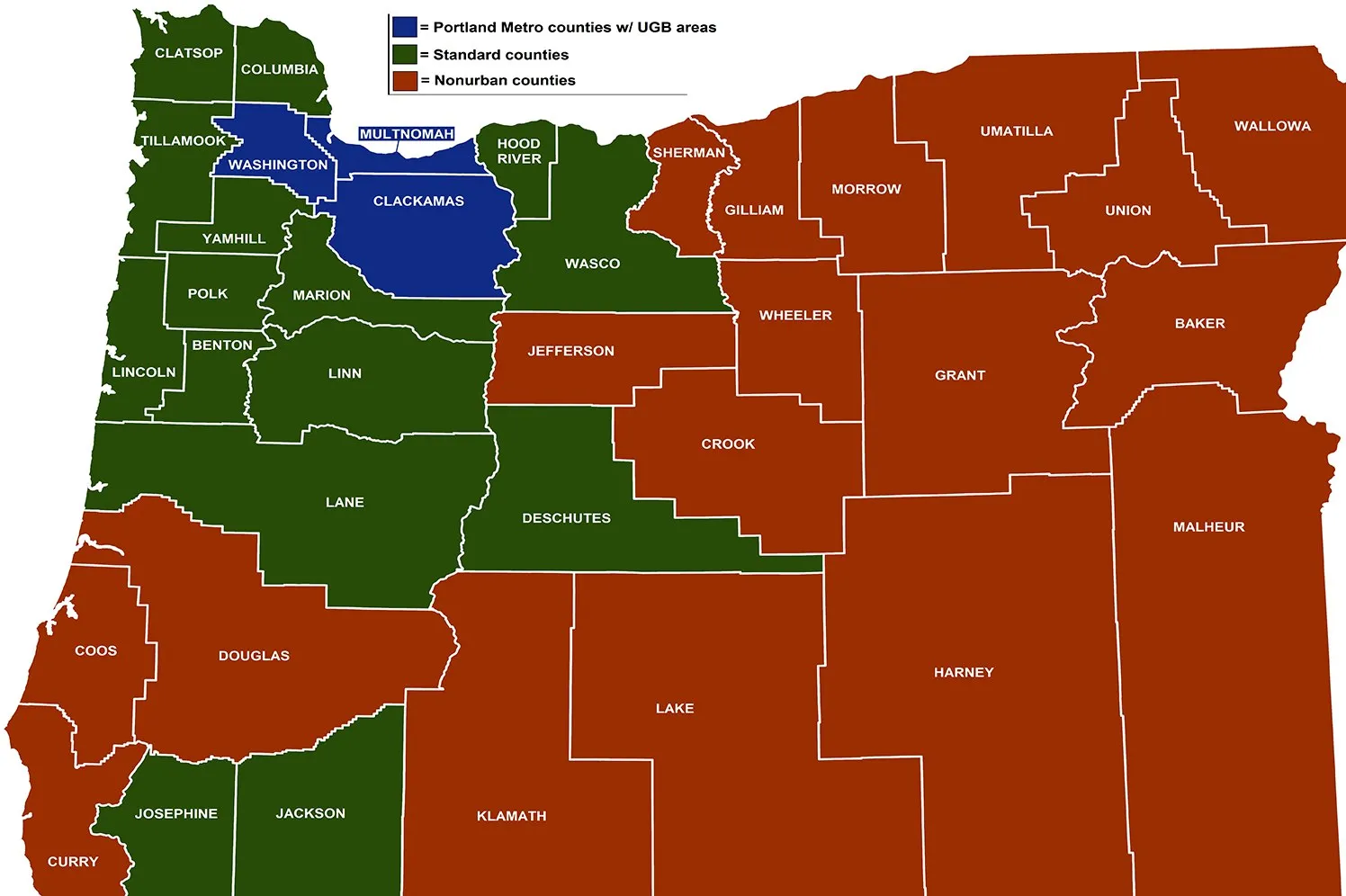Table of contents
We know that as a small business owner in Oregon, you’re eager to stay on top of the recent minimum wage increases. To help you do just that, we’ve put together this quick guide with all the info you need to know in 2025.
What is the minimum wage in Oregon for 2025?
Oregon’s minimum wage is $14.70 for employers in the Standard area, $15.95 in the Portland metro area, and $13.70 in the non-urban counties. The minimum wage in Oregon is the same as last year with it likely to increase again across all counties on July 1, 2025.
Interested in the minimum wage in Eugene, Oregon? Look at the standard counties minimum wage. Do you live in a county in the eastern part of the state? Those are considered non-urban counties. Or if you want to know the minimum wage in Portland, Oregon, take a look at Portland metro.

Are there plans to change the minimum wage in Oregon?
Yes. Effective July 1, 2025, the Oregon minimum wage rate will be adjusted annually based on the Consumer Price Index.
What’s happening beyond 2025?
| Date | Standard Counties | Portland Metro | Non-Urban Counties |
|---|---|---|---|
| July 1, 2023 | $14.20 | $15.45 | $13.20 |
| July 1, 2024 | $14.70 | $15.95 | $13.70 |
| July 1, 2025 | Adjusted based on Consumer Price Index | $1.25 more than standard minimum wage | $1 less than the standard minimum wage |
How should small business owners prepare for Oregon minimum wage and paid leave increases?
Every business is different, so there isn’t one right way to prepare. Here are a few options you may want to consider:
- Audit your expenses: Check your cash flow in detail and create a hiring plan that you can afford. In some cases, you may find that hiring temporary workers as needed is less expensive than taking on full-time regular staff.
- Make sure you hire and keep the right employees: Replacing an employee costs a lot. You decrease the total cost associated with recruiting and training when you hire (and then retain) the right people. Look for candidates with good track records, who come recommended, and who fit in with the company culture. Once they’re onboarded, make sure you build a relationship and provide paths for growth; it makes it more likely that they will stay in their role.
- Keep valuable employees: There is significant cost in replacing an employee. New hires are more likely to stay at your company if you build a relationship with them and provide paths for growth. Employee retention is key to growing your business and preparing for Oregon minimum wage increases.
- Increase prices: This is a great way to increase cash flow. Customers are rarely happy with a price hike, but keep in mind that your competitors will be forced to do the same. Just make sure you keep track of trends, and don’t raise prices too high.
- Update tech: Consider automating certain aspects of the work and find ways to reduce production costs. Once you’ve reviewed the payroll basics, consider switching to Square Payroll, which helps you with tax calculations, timecards, and pay, not only for hourly employees but also for salaried employees.
As always, verify that your business has an EIN, is following the equal pay law, and that you’re allowing your employees to use their meals and breaks.
To make sure your business is prepared and stays in compliance, we recommend that you discuss these upcoming changes to the Oregon minimum wage and paid family leave laws with your accountant and lawyer.
![]()











